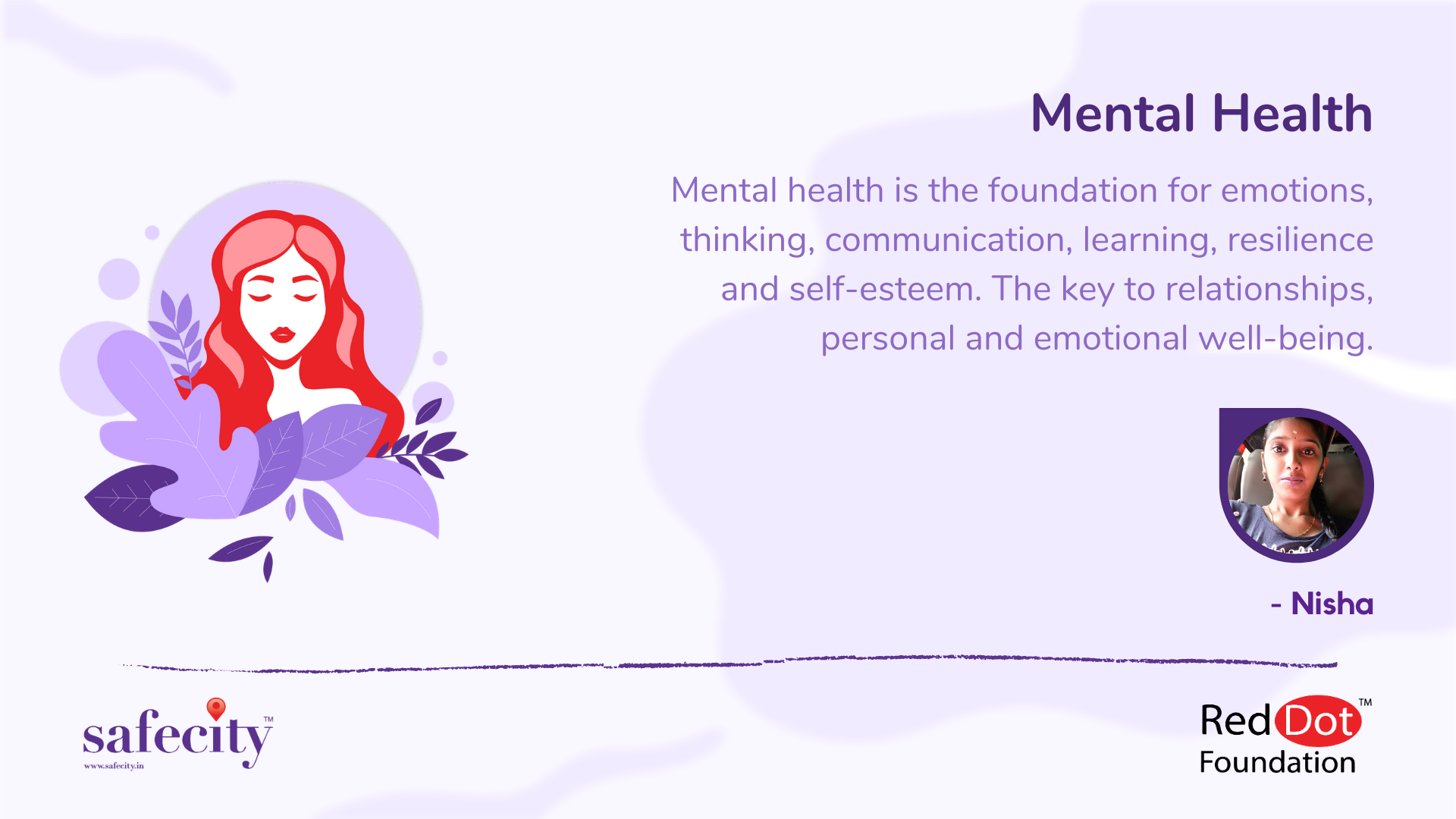Mental Health

According to the World Health Organization (WHO), mental health is “a state of well-being in which the individual realizes his or her own abilities, can cope with the normal stresses of life, can work productively and fruitfully, and is able to make a contribution to his or her community”.
Mental health is the foundation for emotions, thinking, communication, learning, resilience and self-esteem. Mental health is also a key to relationships, personal and emotional well-being and contributing to the community or society.
A mental disorder also called a mental illness or a psychiatric disorder, is a behavioural or mental pattern that causes significant distress or impairment of personal functioning. Such features may be persistent, relapsing and remitting, or can occur as a single episode. Many disorders have been described with signs and symptoms that vary widely between specific disorders. Such disorders may be diagnosed by a mental health professional.
Some of the common and serious mental disorders include depression, bipolar disorder, dementia, schizophrenia and other psychoses. Stigma and discrimination can add to the suffering and disability associated with mental disorders.
The American Psychiatric Association says that mental illness does not discriminate; it can affect anyone regardless of your age, gender, geography, income, social status, race/ethnicity, religion/spirituality, sexual orientation, background or other aspects of cultural identity. While mental illness can occur at any age, three-fourths of all mental illness begins by the age of 24.
Mental illnesses can take many forms. Some are mild and only interfere in limited ways with daily life such as certain phobias (abnormal fears). Other mental health conditions are so severe that a person may need care in a hospital.
Some of the things that help with depression are being around understanding people, cuddling pets or babies, crying it out, listening to music, journaling our feelings, going outdoors to spend some time with nature, cleaning and decorating or whatever one wants to do to keep their mind distracted. Also, there are many online resources available for mental health such as helplines, apps, online workshops, support groups and organisations that offer help.
Right now, all of us know that Mental Health is gradually gaining recognition and attention in our country. On one hand, while we have good, qualified and budding professionals who are actually trying to get us the right quality services available, it is also really sad that there are many individuals and organizations who are into the unethical practice of these services. Therefore, it is vital to ask people for their qualification when you approach them for your counselling, therapy, training, workshop, internship etc, says an Applied Psychologist and Art Therapist.
I feel that it is high time people take mental health into consideration. There is nothing to be ashamed of in seeking help when it comes to mental health. After all, health isn’t just about what you’re eating. It is also about what you’re thinking and saying.
The views expressed are that of the writer.
